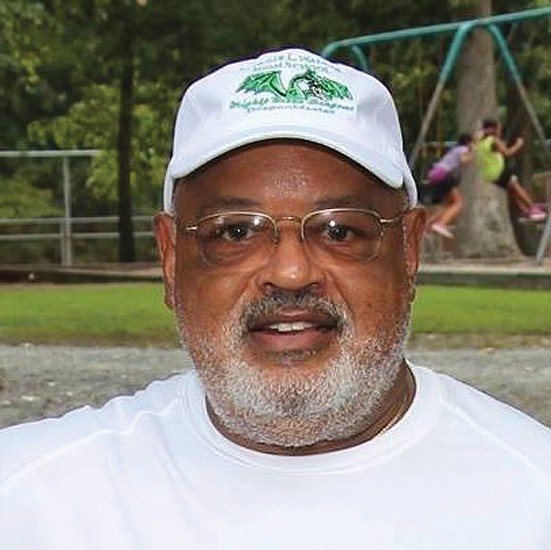Severely injured man waits 78 minutes for ambulance
Jeremy M. Lazarus | 1/4/2024, 6 p.m.
J. Maurice Hopkins found out the hard way that the Richmond Ambulance Authority and the emergency dispatch system does not always respond quickly.
After severely damaging his knees in a fall on Dec. 26, Mr. Hopkins, who was writhing in pain on the ground, had to wait 78 minutes for an ambulance.
In addition, Mr. Hopkins’ family had to make a personal appeal to get Richmond firefighters trained in emergency medicine to respond because the 911 dispatch center apparently never notified them of Mr. Hopkins’ situation.
Stephen Willoughby, city director of emergency communications, could not be reached for comment on the response.
Chip Decker, chief executive officer of the ambulance authority, declined to comment on the response in an individual case.
He did state 10 ambulances were on duty that night, a full complement, and virtually all were handling calls.
Both the Department of Emergency Communications and the Ambulance Authority prioritize calls, and the Free Press has learned that the slow response was due to Mr. Hopkins’ emergency being rated as Priority 3 or non-life-threatening.
According to the authority’s information, the authority seeks to respond with 9 minutes to a Priority 1 or 2 call and within 60 minutes to a Priority 3 call.
Given the severity of the injury, Yvonne Hopkins, Mr. Hopkins’ wife of 54 years, considers the long response time “totally ridiculous.”
Mr. Hopkins and his family are speaking out to shine a spotlight on what they regard as shortcomings in Richmond’s emergency response.
Mr. Hopkins, 76, is well known in the Richmond area. The Henrico resident owned and operated a merchandising sales company for more than 40 years, is a leader in Maggie L. Walker High School Alumni affairs and serves as president of the Oliver White Hill Foundation that was created to honor the famed Richmond civil rights attorney.
His nightmare began as he and his wife left a family gathering in Church Hill around 8 p.m.
In the darkness, he lost his footing on the uneven stairs leading to the front sidewalk and crashed into the uneven concrete that tree roots had made treacherous.
He said he screamed as the fall ripped the tendons and ligaments in both knees and created horrific pain. “It was the worst pain I ever felt,” he said.
His sister, Felicia L. Manns, a retired Fairfax fire captain and emergency services supervisor, and her boyfriend, retired Fairfax Battalion Chief Eric D. Walker, helped keep him warm and called 911 reporting a severe injury to an elderly man with other significant health conditions.
But each time they called, the response was the same: All of the available ambulances were out on calls and none could be identified “to respond to my location” in the 700 block of North 32nd Street, Mr. Hopkins said.
The family could not know what the Free Press also has learned, that ambulances were twice been dispatched to the location, but had been diverted to higher priority calls involving life-threatening situations.
“All of us were appalled at what was happening,” Ms. Manns said.
After 45 minutes, Mr. Hopkins said his wife reached out to a former neighbor, fire Capt. Adam McCain, who works at nearby Engine Truck Co. No. 1. After getting permission from the emergency dispatch to provide assistance, the company responded to the scene and helped tend to him.
But the firefighters were only trained as basic emergency medical technicians and could do little more than Ms. Manns and her boyfriend, who both are trained paramedics.
As the wait continued, Mrs. Hopkins appealed for help to 7th District City Councilwoman Cynthia I. Newbille, who contacted the night supervisor at the ambulance authority. The profusely apologetic supervisor arrived, followed within a few minutes by an ambulance that had completed its previous call.
Ms. Manns said that once the help arrived, it took about 20 minutes for ambulance personnel to assess the situation, get Mr. Hopkins loaded into the ambulance and moved to VCU Hospital.
The damage was so severe he said that he underwent surgery on Dec. 27.
Mr. Hopkins said he remains bedridden with both legs immobilized awaiting transfer to a rehabilitation facility. He hopes to be there by Friday so he can begin physical therapy that would allow him to walk again.
Still, he and his family remain angry and upset about the unbelievable ordeal he endured before he got to the hospital.
“This definitely is not right,” Mr. Hopkins said. “Something needs to be done to make sure that nothing like this happens to anyone else.”







